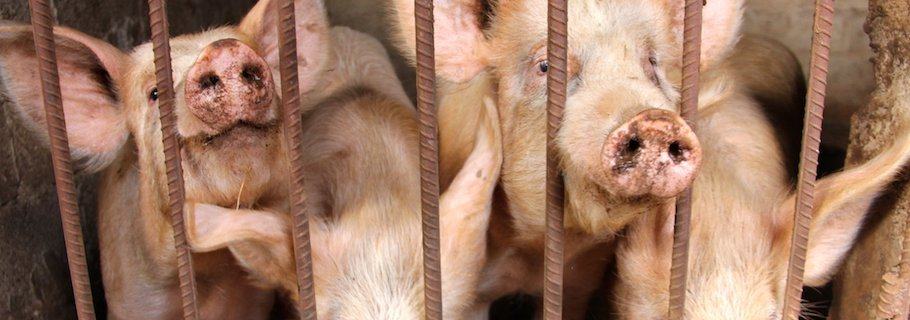We used to live on the fringes of a small town surrounded by farmland. We quickly learned that of all the farm creatures in the world, pigs must be the stinkiest. It was not unusual to drive down the highway on a hot summer afternoon and to begin to detect a faint whiff of pig manure in the air. As we kept driving the smell would get stronger and we’d soon spot a truck in the distance ahead of us. Drawing closer, almost choked by the reek, we’d see that, sure enough, it was stuffed full of pigs on their way to the slaughterhouse. These pigs were so smelly that they would leave a trail of stink that would stretch for miles and linger for hours.
This world reeks of troubles and sorrows. Sometimes we are innocent victims of other people’s sin and sometimes we are willing participants who cause trouble all our own. At other times we are simply caught up in the stink of a sinful world. In any case, we are regularly called upon to respond to situations that are difficult or even excruciating. How can we respond? How should we respond? What’s the best way to bring hope, to bring healing?
The problem with sin is that it is too dreadful, too ugly, too pernicious to allow solutions that are perfectly clean and neat. Instead, a stink lingers in the aftermath of any great sin. We long for good solutions or even perfect ones, but invariably there are only mediocre and bad and worse ones. Sin is too sinful to allow perfection.
I think of people I’ve known whose marriage has been rocked when one spouse admitted to an addiction or an affair. Their friends, their church, and their family offered supported and gave counsel. But there was no neat and tidy way to heal a devastated relationship. There was no clean and easy way to dissolve a broken marriage. It was never a matter of finding a perfect solution, but of finding the least bad one. Why? Because sin is messy. It leaves a stink in its wake. We pray earnestly, we labor faithfully, but all the while we acknowledge our insufficiency. We acknowledge that even our best efforts will be imperfect.
I think of churches whose pastor failed to keep a close watch on his doctrine and began to lead his church into error. Some of the church identified the sin and expressed concern; some of the church embraced the sin and expressed admiration. Words were thrown, sides were taken, rifts were opened. People offered their solutions, but none of them was perfect, none was just right. Why? Because sin is too sinful, and the stink lingered in the aftermath. It would be naive to expect a perfect solution to such an evil problem.
Sadly, there will always be little messes in the wake of big messes, little hurts in the wake of big hurts, unanswered questions in the wake of attempted solutions. Where there is great sin, there will be great stink. We ought to labor to find the best possible solutions, to bring the deepest and truest healing. But we simply can’t expect there will be perfect solutions to messy problems. Not on this side of heaven, at least. The stink of sin always lingers.










